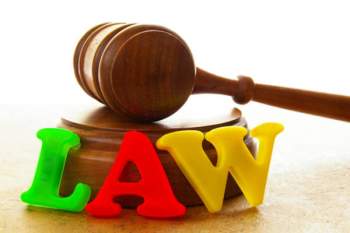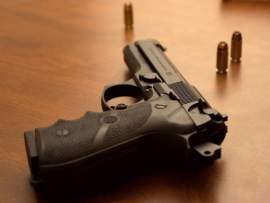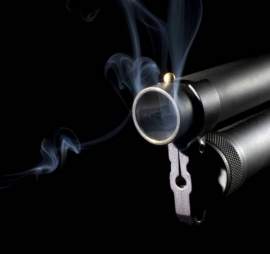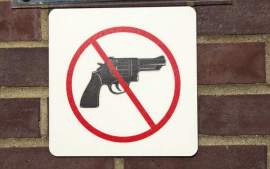
All You Need to Know About Airsoft Gun Laws

Like all potentially dangerous devices airsoft guns are mandated by federal law in the United States. Though generally considered safe, (airsoft pellets are softer and travel at slower speeds than BB guns) airgun use still faces regulations imposed by the government. Airsoft gun laws vary based on country-use or possession is considered illegal in countries such as South Korea, Thailand, Malaysia, and Singapore. Canada's airsoft gun law prohibits the importation of any "replica" guns. The United States has more complex airsoft gun laws, which vary based on state, and focus primarily on importation, distinction from a real firearm, and possession.
Federal airsoft gun laws are more lenient in regards to importation than our
neighbor's to the north. The only law in terms of importation in the United
States requires that all airsoft guns transported within or imported into the
country have barrels with a minimum 6mm wide blaze orange tip. Local airsoft
gun laws will vary based on whether or not the orange tip can be removed. A
primary concern with airsoft guns is their uncanny resemblance to real
firearms. This particular airsoft gun law has been implemented to avoid such
confusion.
To further elaborate on airsoft gun laws as they pertain to similarity with
real firearms, criminal convictions can be placed on an individual if he
attempts a crime with an airsoft gun. Depending on the look of the gun and the
intent, an individual may find himself in troubled waters if a crime was
committed using a replica. For instance, if a man robs a bank using an airsoft
gun he will be convicted as if it were a real firearm. Possession of airsoft
guns can get the attention of local law enforcement, regardless if airsoft gun
laws allow concealment or carrying privileges.
Airsoft gun laws as they pertain to individual use and possession in the United
States vary from state to state. The federal law states that an individual must
be at least 18 years of age to purchase an airsoft gun. That being said,
airsoft guns are not considered to be firearms, so use is legal for all ages. The
distinction between use and purchase is necessary to understand.
Airsoft gun law greatly varies based on
city and state. Some of the specific provisions found in the United States
include:
New York City: All realistic or imitation firearms must be made clear with brightly coated plastics or colors. Brandishing airsoft guns, or any unlawful motions are considered illegal.
Washington DC: All replica guns are considered illegal under Washington DC airsoft gun law
Chicago: All replica guns are considered illegal under Chicago airsoft gun laws
San Francisco: All replica guns are considered illegal under San Francisco airsoft gun laws
Michigan: The purchase of airsoft guns is legal, but all replicas must contain an orange tip on the barrel.
Texas: Allows airsoft guns to be purchased, but most cities permit discharge outside city limits.
Minnesota: Airsoft gun laws state that it is illegal for any child under the age of 14 to use. In Minneapolis, it is illegal to carry an airsoft gun unless the replica is brightly colored or has an orange tip. It is also illegal to fire an airsoft gun within city limits. Any airsoft gun with a laser attachment is considered unlawful to carry. Transporting airsoft guns must be done in a concealed and unloaded manner.
Arkansas: Recently outlawed use and possession of all airsoft guns.
NEXT: Knowing The Types of Airsoft Guns





















